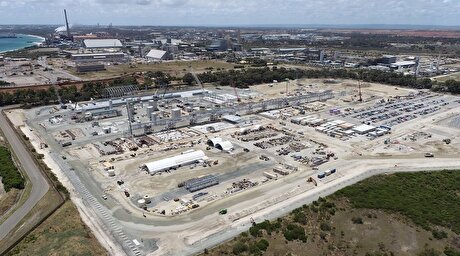
Africans Insist on Developing Oil, Gas and Coal Reserves

Two floors above, the hundreds of delegates at Africa Oil Week were largely unaware – and mostly unmoved – by the display, Reuters reported.
“Under no circumstances are we going to be apologizing,” said Gabriel Obiang Lima, energy minister of Equatorial Guinea, adding that they need to exploit those resources to create jobs and boost economic development.
“People out of the continent saying we should not develop those fields … that is criminal. It is very unfair.”
The tension keenly felt at oil conferences in Europe was largely absent over the three-day event in Cape Town; there was little focus on climate change, apart from the shadow renewables cast over long-term demand.
In contrast, investor and government pressure to address climate change has fundamentally altered oil events in Europe.
While no oil-producing country has stopped developing fossil fuel resources, pledges such as Britain's promise to be net carbon neutral by 2050 or Norway's national carbon tax show that governments acknowledge a need to shift away from fossil fuels.
In Cape Town, African leaders touted the good that oil, gas and even coal can bring on a continent where some 600 million people lack access to electricity.
“Energy is the catalyst for growth,” said Gwede Mantashe, South Africa’s energy minister and national chair of the ruling African National Congress.


Column: EU’s pledge for $250 billion of US energy imports is delusional

Anglo American posts $1.9B loss, cuts dividend

BHP, Vale accused of ‘cheating’ UK law firm out of $1.7 billion in fees

Ramaco Resources secures five year permit for Brook rare earth mine in Wyoming

Southern Copper expects turmoil from US-China trade war to hit copper

Trump tariff surprise triggers implosion of massive copper trade

Eldorado to kick off $1B Skouries mine production in early 2026

St Augustine PFS confirms ‘world-class’ potential of Kingking project with $4.2B value

Newmont nets $100M payment related Akyem mine sale

Caterpillar sees US tariff hit of up to $1.5 billion this year

Uranium Energy’s Sweetwater plant on fast track for in-situ mining approval

Tianqi Lithium Australia JV says it is prioritizing long-term viability of refinery

First Quantum scores $1B streaming deal with Royal Gold

One dead, five missing after collapse at Chile copper mine

Eldorado to kick off $1B Skouries mine production in early 2026

Newmont nets $100M payment related Akyem mine sale

Idaho Strategic rises on gold property acquisition from Hecla

Goldman told clients to go long copper a day before price plunge

Gold price rebounds nearly 2% on US payrolls data

Caterpillar sees US tariff hit of up to $1.5 billion this year

Uranium Energy’s Sweetwater plant on fast track for in-situ mining approval

Tianqi Lithium Australia JV says it is prioritizing long-term viability of refinery

First Quantum scores $1B streaming deal with Royal Gold

One dead, five missing after collapse at Chile copper mine

Eldorado to kick off $1B Skouries mine production in early 2026

Newmont nets $100M payment related Akyem mine sale

Idaho Strategic rises on gold property acquisition from Hecla

Goldman told clients to go long copper a day before price plunge














